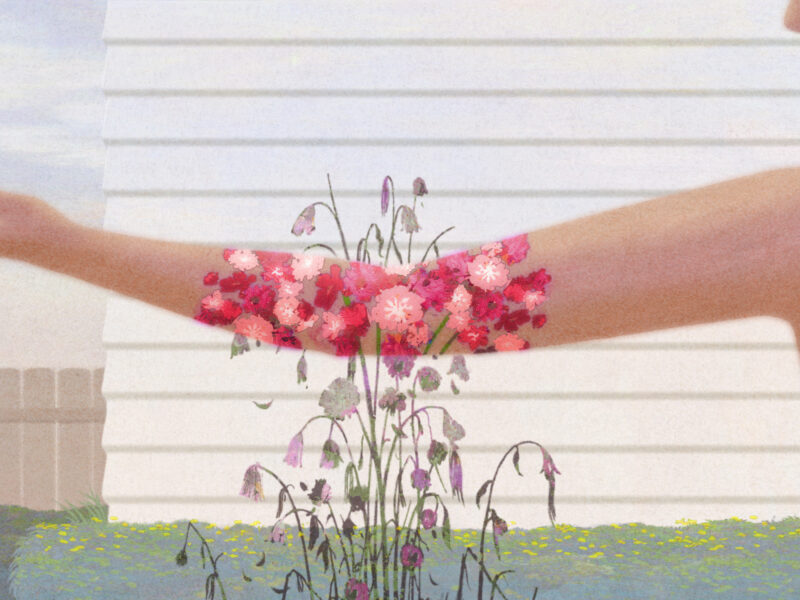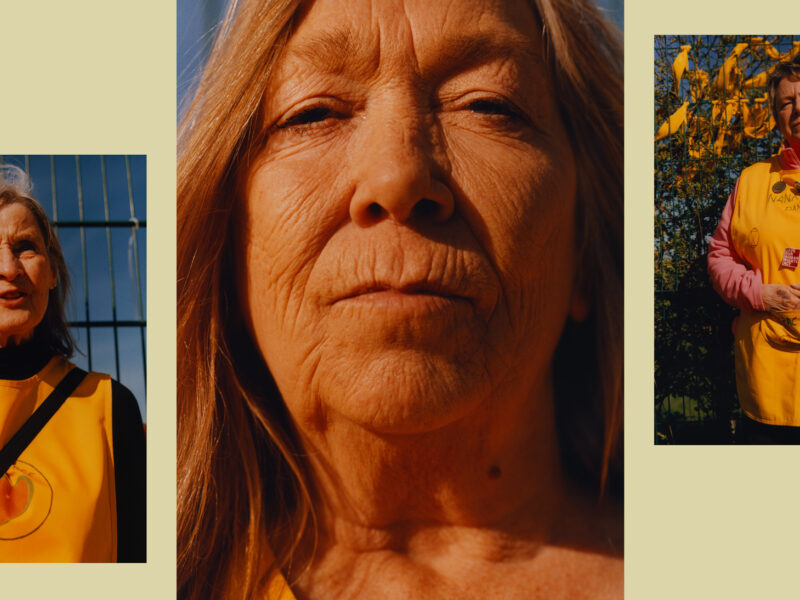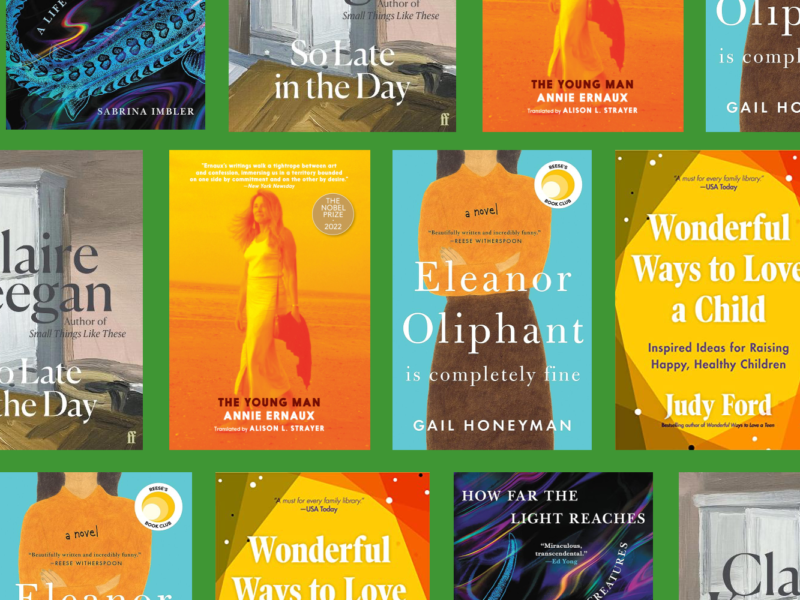The search for home can sometimes clash with the need for security.
Like many Canadians, I grew up with my nose pressed to the window of American life.
This was especially true in my case, because my mother was born in New York City and her mother in Chicago; my great-grandfather was a Chicago developer who built one of the city’s first skyscrapers. My American cousins intimidated me: they included an ambassador, a Harvard archeologist, even a bullfighter. One of them was married to a woman who flew her own small aircraft.
I wanted to be like them — bold, adventurous, successful — and to understand what made them tick; I wanted to flee the quiet, polite country I was born and raised in, where ambition and strong opinions were frowned upon.
Canadian newsstands offered 80 percent American content and I knew the names of Buffalo’s suburbs, Lackawanna and Cheektowaga, because their television broadcasts reached Toronto. I caught deeper glimpses of American contradictions while attending University of Toronto, during a life-changing exchange week at the University of North Carolina, Chapel Hill. We attended a black Baptist church service where the preacher inveighed against abortion and the ladies waved paper fans. We listened to a black UNC administrator describe his life there…and begin to weep.
As someone from a multicultural city, Toronto, and a country where abortion isn’t demonized, both were shocking. Nor had I before imagined the daily toll that racism could play. It all deepened my curiosity about the U.S. even further, making me more determined to find a way to live there.
At 25, I won a fellowship to Paris, traveling Europe for eight months, then was a newspaper reporter in Toronto and Montreal, where I fell in love with a McGill medical student from New Jersey, soon to graduate and return south for residency.
I was able to follow him to the United States, although we were not married, because I was the daughter of a U.S. citizen, applying for “better work opportunities.” After I had taken an AIDS test, undergone a security check and been fingerprinted, an official at the consulate in Montreal interviewed me. I wrote, for a column in the national daily, The Globe and Mail, in 1988:
“The vice-consul asked me surprisingly little. When she approved my visa, after a brief but lively conversation, her enthusiasm and warmth were infectious. Even the guard wished me luck. I felt I’d been invited to a terrific party. I was handed a brown envelope, stamped, signed and sealed. My future was in my hands.”
And so I left behind a perfectly good country, one with excellent and heavily subsidized university education, cradle-to-grave healthcare, a wide, deep social safety net, and a Constitution that promised “peace, order and good government” rather than “life, liberty and the pursuit of happiness.”
For years, Canadians had often guessed I was American, which is a veiled insult that means too bossy, too direct, too nakedly ambitious. I wanted faster decisions and a wider playing field, not the endless foot-shuffling of risk-averse fellow Canadians and a career limited to a handful of major cities.
I’d thought American was more egalitarian than it is, but that turned out to be silly idealism. When I dared suggest to someone at Dartmouth that I audit classes there, since we were in the middle of nowhere for the next four years, pre-Internet, the university administration refused. How about part-time study? Also no.
As I began to try to make sense of my new home, I read two seminal works of the early 1990s that explained the shadowed side of John Winthrop’s 1630 vision of America as a much-admired “city on a hill”: the first was Alex Kotlowitz’s There Are No Children Here, about two boys growing up in a decrepit Chicago housing project during the 1980s; the second was Jonathan Kozol’s Savage Inequalities, a study of two school districts, divided by wealth and class, which were allotted wildly unequal resources by the American way of funding education through housing taxes. This was a key difference between my experiences in Toronto and Montreal.
In Hanover, a local social worker told me about the grinding poverty she saw on muddy backroads, the battered trailers with plastic on the windows, while Dartmouth’s most privileged students raced their shiny sports cars through town and dropped enormous sums in its few stores. There is poverty in Canada; this is particularly true for the shamefully neglected Indigenous people. But the shocking inequality of the United States, where the three wealthiest Americans collectively own more wealth than the bottom half of the population (while the middle class struggles to pay for healthcare and university tuition), is absent; Canada has its billionaires and millionaires, but they tend to be more discreet about their good fortune.
First American lesson: Prove you’re rich! Income inequality be damned.
I wanted my career back, so we moved to suburban New York, where I’ve lived ever since. After two years of marriage, my husband left and I started my American life yet again, without children. I’d insisted on a pre-nuptial agreement, which enabled me to survive financially and keep my home.
Second American lesson: Know your legal rights and be ready to fight hard for them.
Third American lesson: A tough lawyer is often your new best friend.
Single and lonely, in 1998 I answered a personals ad in a local alternative weekly — which brought a convicted con man into my life, who wreaked emotional havoc and cost me several thousand dollars.
Fourth American lesson: In a country so diverse, re-invention is easier. In a huge and mobile country, less fussy about one’s origins, he simply traveled east and started victimizing anew.
Fifth American lesson: Some Americans are wildly impressed with self-confidence and happily defer to material signs of success; before he was caught in Chicago, the conman had posed as a doctor and as a lawyer.
In the decades since, I’ve often wondered about my “ghost life.” What if I’d stayed in Canada? When I visit, I find that I miss the civil conversation, the more generous public policies and, most of all, a national culture that is not poisoned by right-wing terrorism.
In 2002 and 2003, while researching my first book, I traveled to Ohio, New Orleans, Massachusetts and Texas to interview 104 men, women and teens about women and gun use, asking whether they owned a firearm or whether one had shattered their life. I spent three days learning how to fire a Smith & Wesson 9mm pistol, which gave me the street cred to speak with suspicious gun owners; their first question to me was always the same: Do you believe in the Second Amendment?
Sixth American lesson: It’s as if the Constitution’s ink were still wet, so often is it cited. And every time I ask someone about their concomitant responsibility to the common good I might as well be speaking Greek, so hollow does the phrase ring in a nation addicted to the primacy of individual rights.
I survived the financial crash of 2008, thanks to my second husband’s secure job and my work in a part-time retail position for $11/hour, an experience that was the subject of my second book. In two-and-a-half years, while selling $600 ski jackets, my hourly wage was raised by only 30 cents. The store’s wealthy customers recoiled in shock if I replied to them in French or Spanish. They automatically assumed anyone working at a low-level job couldn’t possibly be as well educated or well-traveled as they.
Seventh American lesson: A low-wage job de facto signals low status. One customer tossed a quarter at us, barking: ‘Go to college!” Every one of our 15-member staff had done so, and two were military veterans. I saw firsthand what $11/ hour could buy. Almost nothing. With college costs so high, how could anyone flee?
Eighth American lesson: The stunning cost of American post-secondary education breaks as many as it helps. Two of our friends in their early 30s, both from blue-collar families, are crippled by their college debts of $60,000 and $100,000. My annual tuition in mid-1970s Canada was $660 a year; today, it would be $6,000.
In a country professing such deep allegiance to “liberty,” American workers have no right to paid vacation, sick leave or paid maternity leave. Union membership is low, and the federal minimum wage has been stagnant for decades.
Since Donald Trump’s election, our Canadian friends have shifted from asking: “Will you come home?” to “When will you come home?”
I struggle to find a response, even as I realize that most of my reasons for staying are predicated on privilege. I am an educated white woman, in good health; I have work, savings in the bank, and a gainfully employed husband who is also in good health. If I were poor and lived in a rural area, Canada’s social safety net might appear much more appealing than it does from a pretty and prosperous town within easy distance of New York City.
Until we can afford to retire we need well-paid work, which, even in the worst of times, is more plentiful for us where we live now. My experience of trying to do business with Canadians has been frustrating: often they murmur encouragingly and then disappear, true to an aspect of the national character that places value on avoiding potential conflict.
The U.S. feels more foreign now than it did when I first made it my home, nearly 30 years ago. It is tainted by mass incarceration, racism and daily violence. Shooters armed with automatic weapons have massacred thousands and schoolchildren practice “active shooter drills.” In a nation that never shuts up about “productivity,” retailers sell us scented candles to relax. No one seems to notice the contradiction.
Soon, there will be more than 100,000 dead from COVID-19; meanwhile, the White House administration’s chaotic responses are a deadly roulette wheel.
I love our historic, lovely Hudson River town and its ready access to the pleasures of Manhattan — although they are temporarily off limits during the pandemic. The fact remains; unless we move to a rural, isolated area with poor medical access, we can’t afford comparable Canadian housing and my home city, Toronto, has become both violent and expensive, with tiny teardown houses selling for $1 million.
I loathe Trump and fear four more years of this nightmare.
I enjoy our life here— while knowing how deeply its systems punish so many others.
It’s a moral thorn.
Stay?
Go?
I still don’t know.



